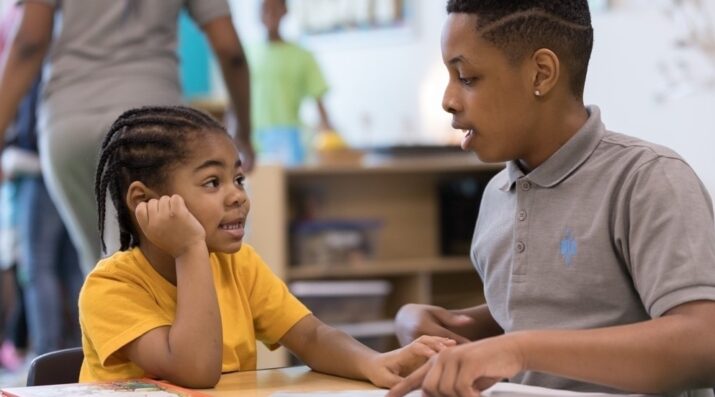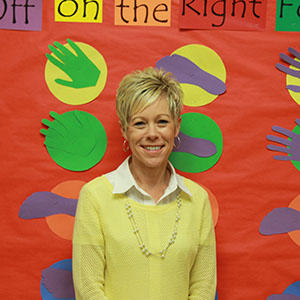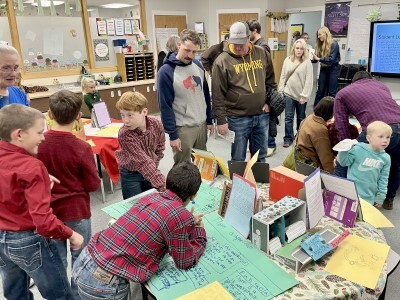One and Done No More! (Why Mastery Based Learning ROCKS!)
Topics

Educators are rethinking the purposes, forms, and nature of assessment. Beyond testing mastery of traditional content knowledge—an essential task, but not nearly sufficient—educators are designing assessment for learning as an integral part of the learning process.
The power of formative feedback isn’t generating grades for the grade book; the power is using it to drive instruction so each student reaches mastery.
One day during this school year, the middle school math teacher next door to me expressed frustration after her students did not score well on a test. She had given much time and energy to the whole group in reviewing, but the results did not produce her desired outcome. I listened and nodded, but thoughts were swirling in my head. These thoughts included how foreign this all sounded to me. Sure, on occasion I might feel like my students missed the mark, but because I am in year four of implementing mastery-based learning practices, my students and I do not experience the “one and done” test in which some have failed but get dragged on to the next learning target anyway.
As my students self-pace through short lessons, they take mastery checks more frequently, receive feedback more personally, and if they do not pass the mastery check, we spend time reviewing and reassessing.
Pause and consider this. In a traditional classroom, students primarily study for a test, take the test, and regardless of their score, move on to the next lesson. In this typical scenario, teachers should ask: Is real learning occurring in my classroom? I knew that for 24 years of my teaching career, this was a scenario I wanted to eliminate for good.
Now picture a different classroom. Students work through a lesson, take a short mastery check, and for those who do not pass, time is spent reteaching, reviewing, and reassessing. The mastery checks involve more than simply memorizing information. Students are challenged to apply knowledge and critical thinking skills. For example, after learning about dramatic irony in an eighth grade literature class and completing a variety of practice, students take a mastery check in which they read a short passage to identify the dramatic irony by citing evidence and explaining how it is ironic. This requires students to retrieve the definition of dramatic irony, apply it to the text, and defend their reasoning. Using mastery checks with frequent retrieval practice moves students up the data chart. Now we are really getting somewhere!
It took 24 years for my classroom to slowly shift to using formative assessment in a more productive way. A huge shout-out to Jennifer Gonzalez, Cult of Pedagogy, who led me to the free online course for the Modern Classroom Project (MCP). This course paved the way for how I handle formative assessments in my classroom, and I have never looked back! As my students self-pace through short lessons, they take mastery checks more frequently, receive feedback more personally, and if they do not pass the mastery check, we spend time reviewing and reassessing. My middle school students and I use formative assessments, along with the mastery checks, to evaluate if they are meeting targeted goals. If formative assessments show they need more practice opportunities, those students are able to spend more time on a learning objective.
How are students afforded more time and differentiation? With systems in place such as self-pacing, blended instruction, and mastery based learning, students work through a lesson at an individualized, comfortable pace. The short instructional videos that I have made for my students allow me to clone myself so real work can be done working with students in small groups and one-on-one. This ensures that if students do not meet the success criteria for mastery the first time, I can reteach it in a different way. My students appreciate this and proof appears in their reflection comments. One eighth grader commented, “I like that Mrs. Domingo has time to work with me at my level if I don’t understand something. It is also less pressure knowing I can retake a mastery check or test after she reteaches it to me.”
Recently, I reflected on my journey to use formative assessments as a Modern Classroom teacher when I read Jennifer’s “EduTip #30: Do something after formative assessments.” The first point that Jennifer made that really resonated with me was the “power of formative feedback” vs. “the teacher is the ultimate authority.” Jennifer also included in this tip:
“These checks are meant to give us a snapshot of student understanding so we can adjust our instruction as needed—not to generate grades.”
Wow, so true, Jennifer! Prior to MCP, my main goal for formative assessments was generating grades in the grade book without using them to drive instruction. This is the power of formative feedback: I now can adjust my teaching for those who need it while the other students are challenged to more advanced activities that go beyond mastery.
The last point that hit me in EduTip #30:
“The bigger mistake, though, is not doing anything in response to the results. If I give my students an exit slip at the end of a lesson to check their grasp of a particular skill, and a third of them don’t do well, just moving forward with my original teaching plan the next day is a missed opportunity.”
Thank you, Jennifer, for reminding me why I became a Modern Classroom teacher! I do not let missed opportunities pass us by.
My 27 years of teaching has been an awesome journey! Jennifer’s article reinforced that my slow shift to mastery-based learning was key. In the last three years, I have seen great success in my students such as an eighth grader who not only passed the state test after underperforming as a sixth and seventh grader but went beyond grade level. My students know the work we do together matters, and they are granted many chances along the way. These are the successes that hit a home run! We have a partnership that leads to team effort, and we love it!
Photo at top courtesy of Two Rivers Public Charter School.




